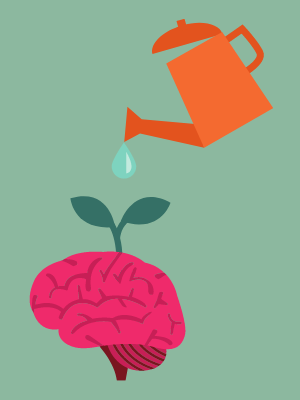How to calm down your brain

Parent Post
Humans are wired to
Humans are wired to worry. Our brains are continually imagining futures that will meet our needs and things that could stand in the way of them.
There are many methods of quieting the mind and most of them draw on just a few straightforward principles.
Evolution prioritizes survival over
Evolution prioritizes survival over happiness
This default to planning is part of our evolutionary history.
Mind-body programs like yoga and mindfulness are indicative of the yearning many people have to be in the happier present moment.
How we use our attention is central to our emotional well-being, and many mind-body programs are based on training our minds to be more skilful in this way.
Our bodies take noticeTraditional
Our bodies take noticeTraditional meditation teachings attribute our everyday unease to the bodily tightening that naturally accompanies the possibility of loss, failure and unfulfilled dreams.
So, when you notice yourself tensed, shift your attention to the sensations of your breathing. Bodily tension naturally dissipates with the shift in focus, and a feeling of greater calm follows.
Studies confirm an increase
Studies confirm an increase in happiness when people focus attention on what they are doing, rather than when their minds are wandering.
Certain brain regions become active when our attention is not occupied with a task.
These envisage futures compatible with our needs and desires and planning how those might be brought about.
Other mind-body programs use
Other mind-body programs use similar principles
Yoga and tai chi, direct attention to the flow of sensations accompanying the sequence of movements.
In contrast, systems such as cognitive therapy, self-compassion, prayer and visualization counter the ambient narrative’s unsettling tone with more reassuring thoughts and images.
Human brains have evolved
Human brains have evolved to do this automatically – planning for scarcity and other threats to ensure survival. But there’s a downside: anxiety.
Mindfulness, the practice of observing our mind’s activity, affords both real-time insights into this default feature of the mental operating system and a capacity to self-regulate it.

